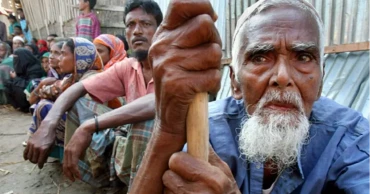ADB 57th Annual Meeting
Despite economic success, rapidly-aging developing Asia unprepared to ensure elderly wellbeing: ADB
The number of people aged 60 and above in developing Asia and the Pacific is set to nearly double by 2050 to 1.2 billion—or about a quarter of the total population—significantly increasing the need for pension and welfare programs as well as healthcare services, said a new report on Thursday (May 02, 2024).
At the same time, economies have an opportunity to reap a “silver dividend” in the form of additional productivity from older people, which could boost gross domestic product in the region by 0.9% on average, said the Asian Development Bank (ADB).
“Asia and the Pacific’s rapid development is a success story, but it’s also fueling a huge demographic shift, and the pressure is rising,” said ADB Chief Economist Albert Park.
“Governments need to prepare now if they’re going to be able to help hundreds of millions of people in the region age well. Policies should support lifetime investment in health, education, skills, and financial preparedness for retirement. Family and social ties are also important to foster healthy and productive populations of older people and maximize their contribution to society.”
Developing Asia and the Pacific is unprepared to secure the well-being of its rapidly aging population as the growing share of older people in the region face challenges from low pension coverage to health problems, social isolation, and limited access to essential services, according to the multilateral development bank.
ADB, WTO strengthen collaboration for sustainable economic growth in Asia-Pacific region
While longer lifespans reflect the region’s development success, comprehensive policy reforms are urgently needed to support the welfare of older people, according to “Aging Well in Asia: Asian Development Policy Report,” released on Thursday by the Asian Development Bank (ADB) at its 57th Annual Meeting.
According to the report, 40% of people over age 60 in Asia and the Pacific lack access to any form of pension—with women disproportionately affected, as they are more likely to do unpaid domestic work.
As a result, many older people in the region have no choice but to work well beyond retirement age to survive.
Among those still working at age 65 or older, 94% work in the informal sector, which typically doesn’t provide basic labor protections or pension benefits.
Physical and mental health challenges also increase with age.
FBCCI urges govt policy to facilitate backward linkage industries
Around 60% of older people in Asia and the Pacific do not attend or receive regular health checks, while 31% report depressive symptoms owing to illness, social isolation, and economic insecurity.
Older women in the region are also more likely than older men to suffer from ill health, from depression to diabetes and hypertension.
The report recommended a wide range of policy measures to support healthy and economically secure aging.
Among these are government-assisted health insurance and pension plans, improved health infrastructure, and free annual check-ups and lifestyle evaluations.
Policy makers should aim for universal healthcare coverage, while basic labor protections should be extended to older informal workers, according to the report.
By making mandatory retirement ages more flexible, helping older people stay healthy, and providing them with suitable work opportunities as well as lifelong learning and skills development, economies in the region can help older people stay productive longer.
Read more: Developing Asian economies’ growth expected to be sustained at 4.9% this year and the next, ADB President says ahead of Annual Meeting
1 year ago

